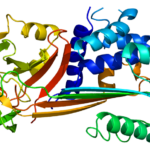 It can be difficult sometimes to connect the dots between what happens in the halls of Congress to what affects us in our own neighborhoods, or even our own homes. But that’s not the case with medical research that the federal government supports through the National Institutes of Health (NIH).
It can be difficult sometimes to connect the dots between what happens in the halls of Congress to what affects us in our own neighborhoods, or even our own homes. But that’s not the case with medical research that the federal government supports through the National Institutes of Health (NIH).
Consider this: 1.35 million deaths are prevented every year due to research on cancer, heart disease, stroke and diabetes. And people in the U.S. are living longer – one additional year of longevity is added every six years – thanks in large part to NIH-funded research.
So when clinicians, researchers and other leaders in biomedical research gather today in Washington, D.C., to call for more funding for NIH, their message at the “Rally for Medical Research” is one that affects us all. As a cancer clinician and researcher, I know that everyone knows someone who has been touched by cancer, and cuts to research funding have come at a critical time in the fight against this devastating disease.
Since 2004, the NIH budget has failed to keep pace with medical inflation. And as a result, fewer competitive research project grants are being awarded, slowing the pace of getting much needed medical advancements from the laboratory to the patients who need it. The lack of funding also affects people’s pocketbooks, with NIH-supported research in all 50 states creating 402,000 jobs and adding $60 billion to the economy.
Here at the University of Pittsburgh Cancer Institute (UPCI), a partner with UPMC CancerCenter, so much of the important work we do is tied to NIH support. As we commemorate our 30th year, UPCI received notice this year that its core grant from the NIH, worth $25.6 million, was renewed. This is the main grant that funds our work as a National Cancer Institute (NCI)-designated comprehensive cancer center, the only one in western Pennsylvania. Other notable grants we’ve received recently include:
- $10.9 million for the NCI SPORE grant for head and neck cancer research led by Dr. Robert Ferris, one of four important SPORE grants we’re involved in.
- $18 million for our continued research into radiation mitigation, led by Dr. Joel Greenberger.
- $6.3 million NCI Outstanding Investigator Award for the cancer prevention work of Dr. Thomas Kensler.
These grants represent a huge investment in our highly motivated and dogged researchers and the hugely important work they are doing every day in our laboratories. Medical research is akin to playing with building blocks, with each new insight being built upon by more and more knowledge, all requiring support and funding to make new therapies for patients a reality.
We at UPCI are grateful for the continued support of the NIH and join in the rally for more funding. It is critical that we continue to build on what we’ve already learned as we work toward a future free from cancer.
Nancy E. Davidson, M.D., is director of UPCI and UPMC CancerCenter, and president-elect of the American Association for Cancer Research.








